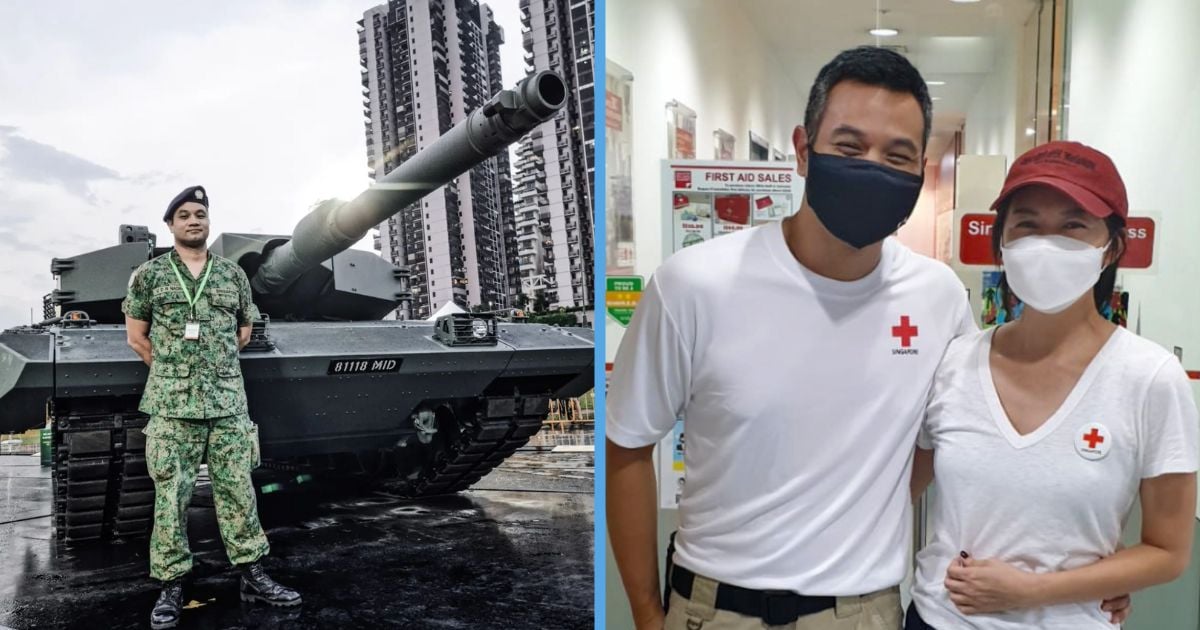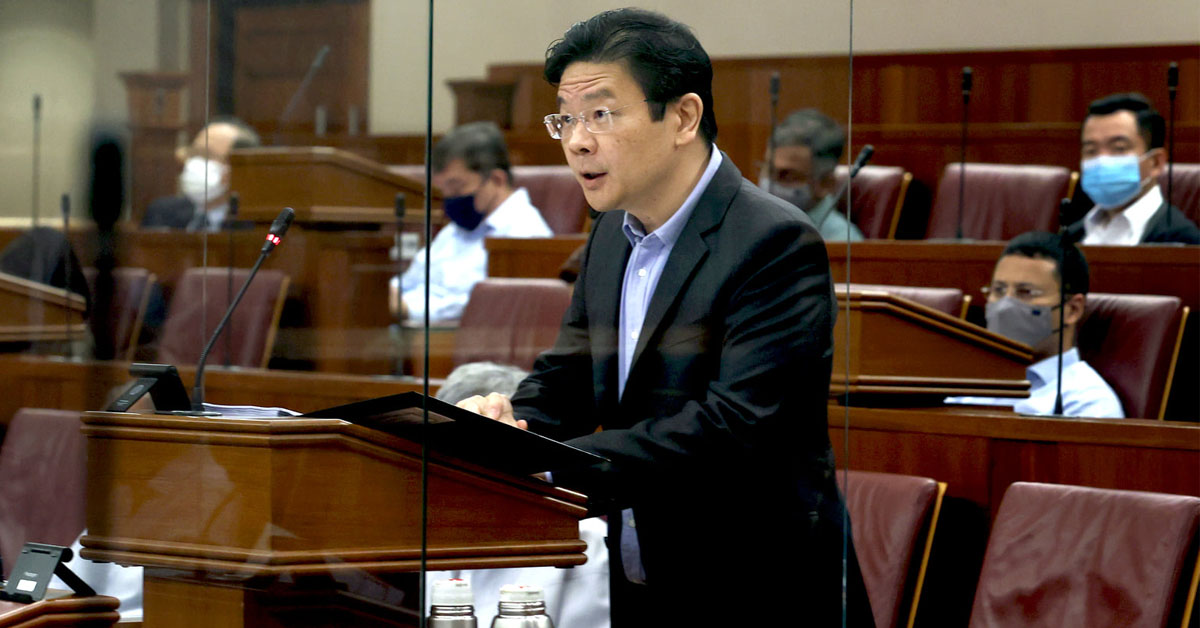You might not expect someone who has enjoyed a charmed life to willingly enlist in the Singapore Armed Forces Volunteer Corps (SAFVC).
Previously, we witnessed the story of a Singapore Permanent Resident and YouTuber who chose to become a part of SAFVC, earning the admiration and respect of her viewers as she shared her army experience.
Another individual seeking a greater sense of purpose is none other than Mr Nadim van der Ros, husband to Singaporean singer-songwriter Stefanie Sun.
In a personal account featured in Pioneer, a magazine dedicated to the Singapore Armed Forces, Mr Nadim van der Ros, who married Stefanie Sun in 2011, shares the story of his 13-year journey as a volunteer.
Early Life
Born in Jakarta, Mr van der Ros shared that he was immediately placed for adoption and received financial support from an anonymous benefactor.
By the end of that year, he was adopted by his Dutch parents, who were residing in Asia at the time.
During his first two years, Mr van der Ros lived in Singapore, forming deep connections with the country.
Subsequently, his family relocated to England, where he had the opportunity to attend prestigious schools.
Mr van der Ros acknowledges that privilege granted him significant advantages, including securing internships and eventually a full-time job in Hong Kong, where he met his now 45-year-old wife, Sun.
Yet, at the age of 46, Mr van der Ros sought more than just a comfortable life.
He felt a compelling desire to express his gratitude to the surrounding community and give back in return for the privileges he had enjoyed. This aspiration arose during his time as a marketing professional.
Beginnings in Volunteering
In 2010, he decided to leave behind his thriving career as a senior marketing executive in Singapore, embarking on a journey to establish a consulting firm dedicated to assisting social organisations in refining their brand strategies.
His commitment to volunteering transcended traditional fundraising, leading him to engage in more hands-on roles.
These included serving as a first aider with the Singapore Red Cross Society and leading missions to Batam, Indonesia, in collaboration with the housing charity Habitat for Humanity.
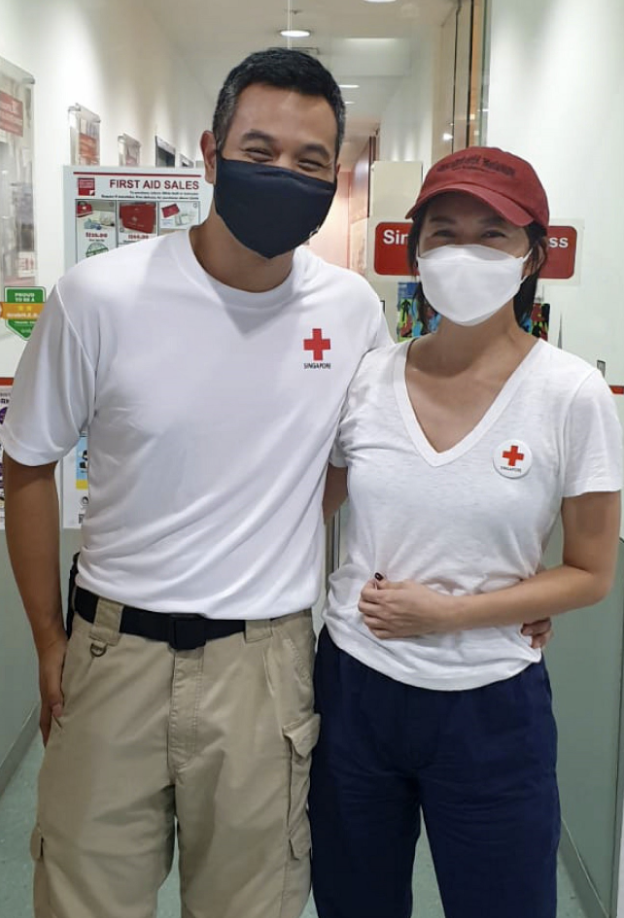
These missions aimed to construct homes for low-income families in need.
In 2016, Mr van der Ros faced a reality check when six Indonesian terrorists were arrested in Batam for plotting to launch rockets at Marina Bay.
He emphasised that the incident served as a powerful reminder of the critical need to foster more resilient and secure communities, achieved through a combination of compassion and fortitude.
“From Batam, one can see the lights of Marina Bay Sands, a symbol of our prosperity. It’s not hard to understand the resentment that can build when people struggle to keep the rain out of their homes while witnessing our luxurious indulgences,” he said.
He further said that the incident had deepened his conviction in the essential role of humanitarian work in safeguarding Singapore’s security.
He added that ensuring the nation’s safety requires a compassionate spirit, firm resolve, and decisive action.
Joined the SAFVC in 2021
Upon realising that his volunteering efforts directly impacted the safety and security of his homeland, Mr van der Ros took a significant step by enlisting in the SAFVC in 2021.
He currently holds the role of an Auxiliary Security Trooper within the SAFVC.
The SAFVC stands as a uniformed volunteer program designed to offer Singaporeans and Permanent Residents the chance to actively contribute to national defence and safeguard the nation’s security.
“By volunteering as a soldier, I’ve also grown as a humanitarian volunteer,” Mr van der Ros said.
He vividly recalls a mission to Sri Lanka with the Singapore Red Cross in August, during which the SAFVC embarked on a visit to four schools.
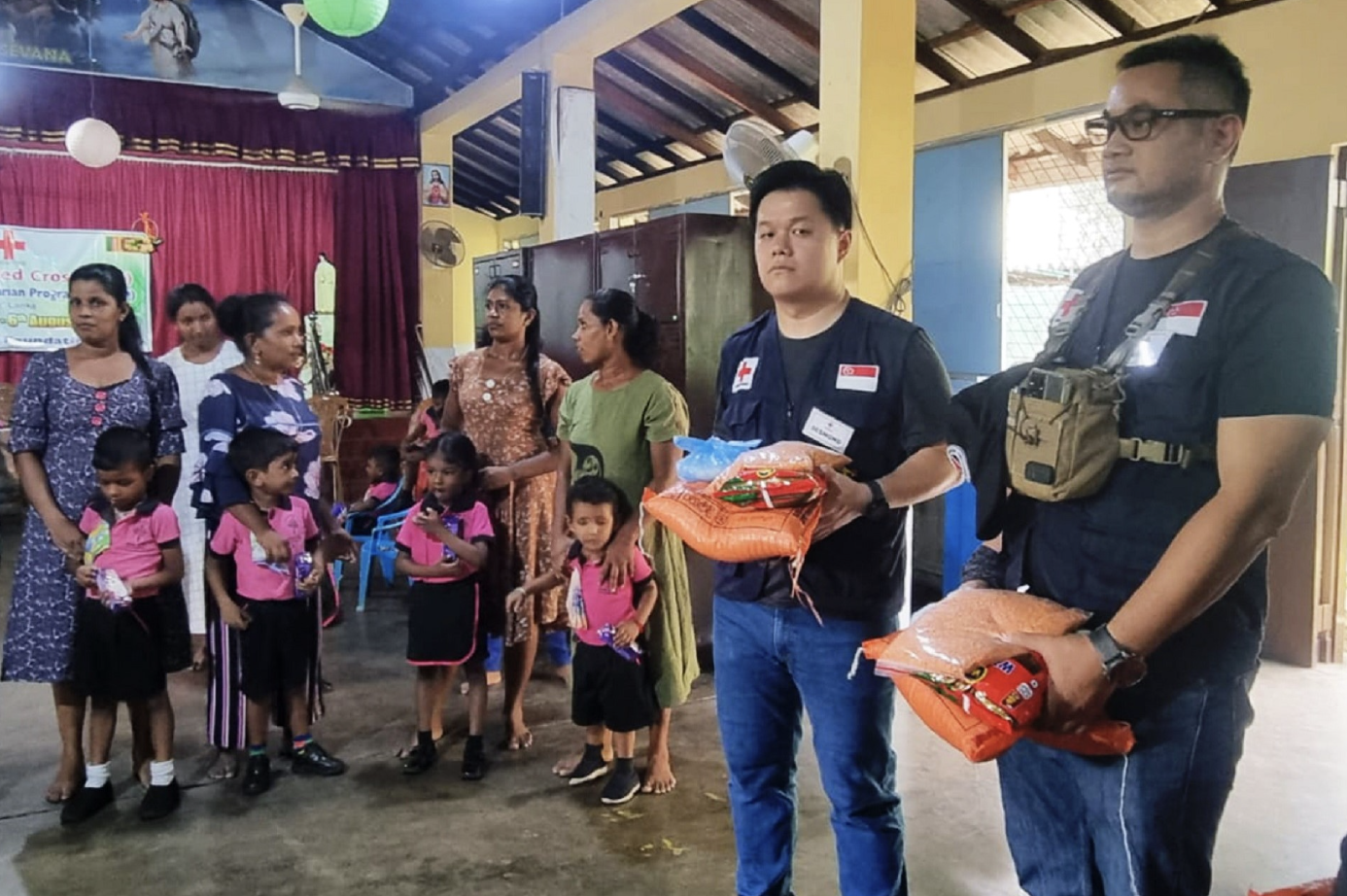
The team’s activities included distributing food, installing water filters, and training in first aid and humanitarian principles.
In addition to these responsibilities, Mr van der Ros took on the role of educating the students on crucial subjects such as proper oral hygiene, effective handwashing techniques, mosquito control, and physical fitness.
He observed that while military and humanitarian work may have distinct objectives, these two realms frequently converge and share common skills and disciplines, with adaptability being a prime example.
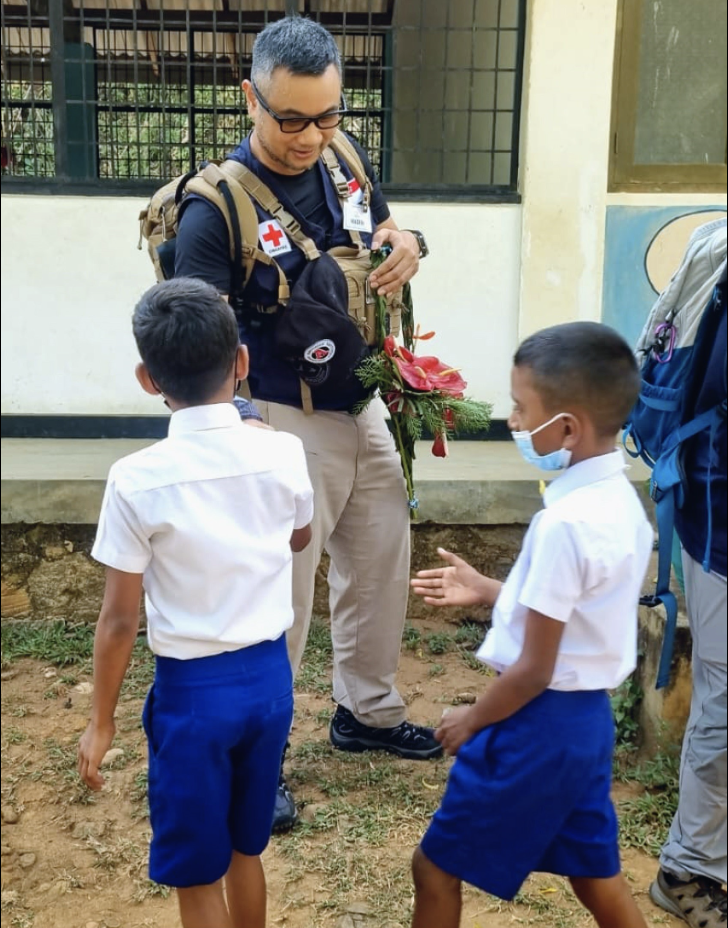
For instance, lesson plans initially crafted within the confines of SAFVC’s offices needed significant adjustments to suit the real-world conditions on the ground, given the absence of conventional classrooms within the Sri Lankan schools.
A profoundly moving moment unfolded during the trip when the soldiers paid a visit to the Sri Lanka Singapore Friendship College, a girls’ school that received support from the Singapore Red Cross following the devastating 2004 Indian Ocean earthquake and tsunami.
This disaster, the nation’s most catastrophic, claimed 31,000 lives in Sri Lanka and displaced nearly a million people.
The team’s arrival at the school was met with a heartfelt reception as the school’s marching band extended a warm welcome.
They played Singapore’s national anthem and, alongside the national flag of Sri Lanka, proudly raised the flag of the Republic during a touching flag-raising ceremony.
He said: “Volunteering isn’t just an act, it’s a calling. It’s a life filled with purpose and contribution.”
If you don’t know what SAFVC is, we’ve got you covered.
The Singapore Armed Forces Volunteer Corps (SAFVC) is a uniformed volunteer initiative designed to expand the pool of contributors to Singapore’s national defence.
Eligible applicants include Singaporean women, first-generation Permanent Residents (PRs) and new citizens.
Established in 2014, SAFVC serves as a platform for both Singaporean men and women aged 18 to 45 who have fulfilled their National Service (NS) obligations to continue their part-time service to the nation.
Volunteers enrolled in SAFVC undergo military training, acquire valuable skills, and have the flexibility to select from various roles, including support for humanitarian missions, cybersecurity, or crisis response.
